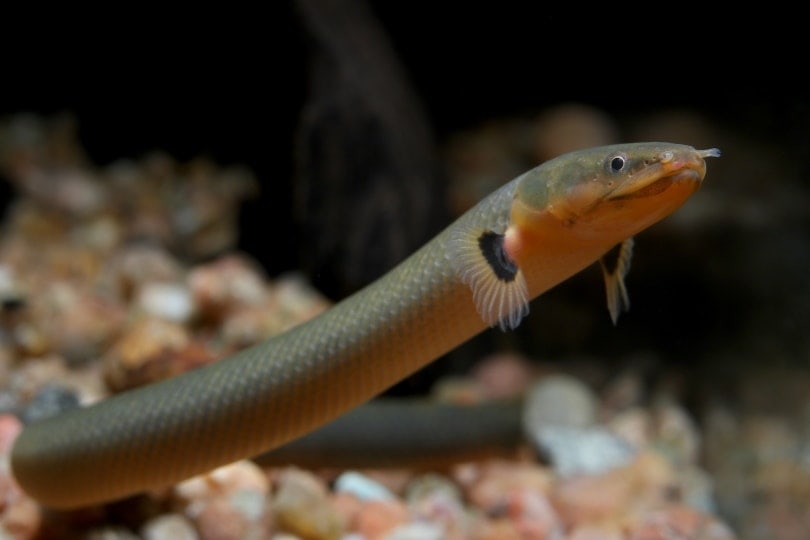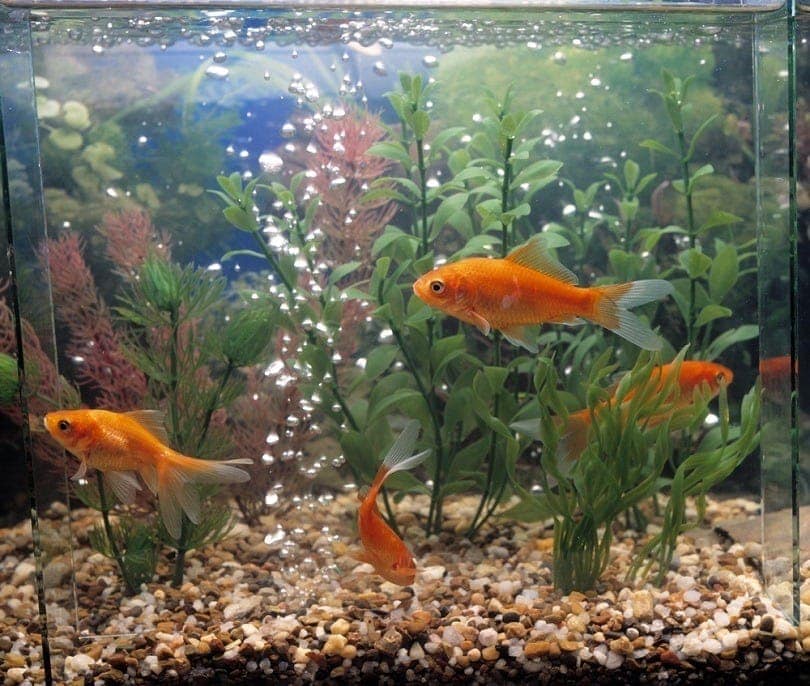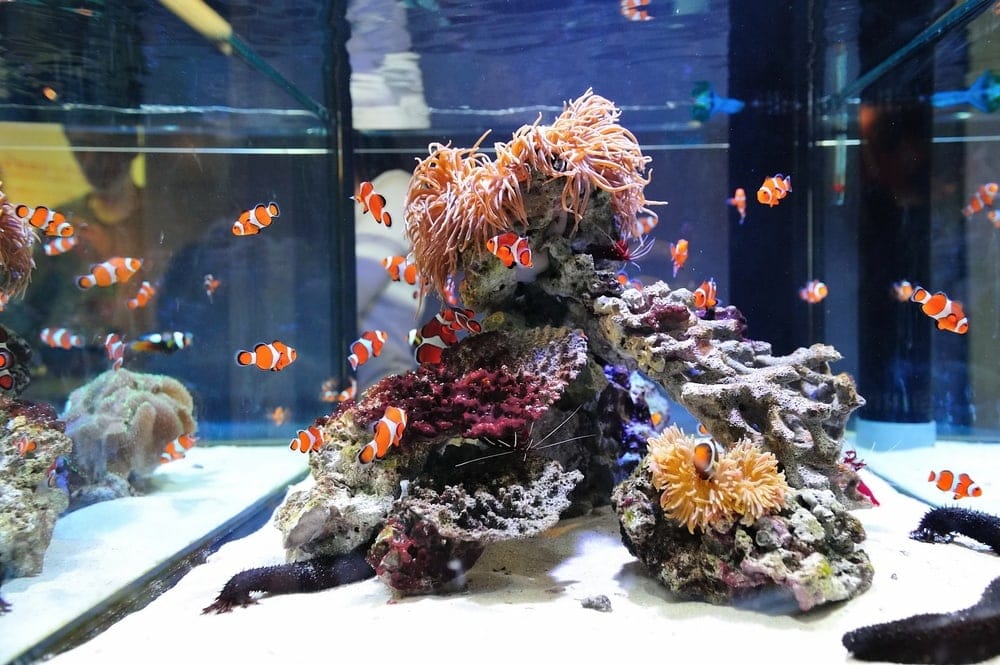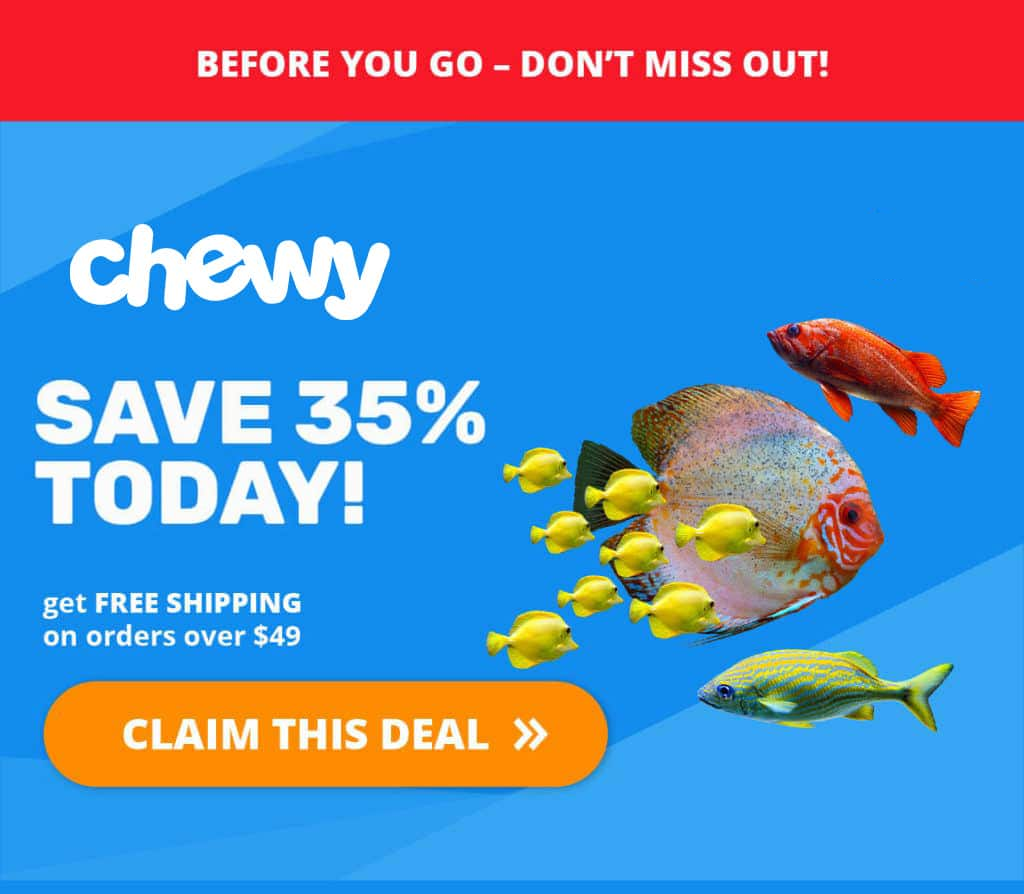Do Koi Fish Eat Algae? Nutrition Facts & FAQ

Updated on
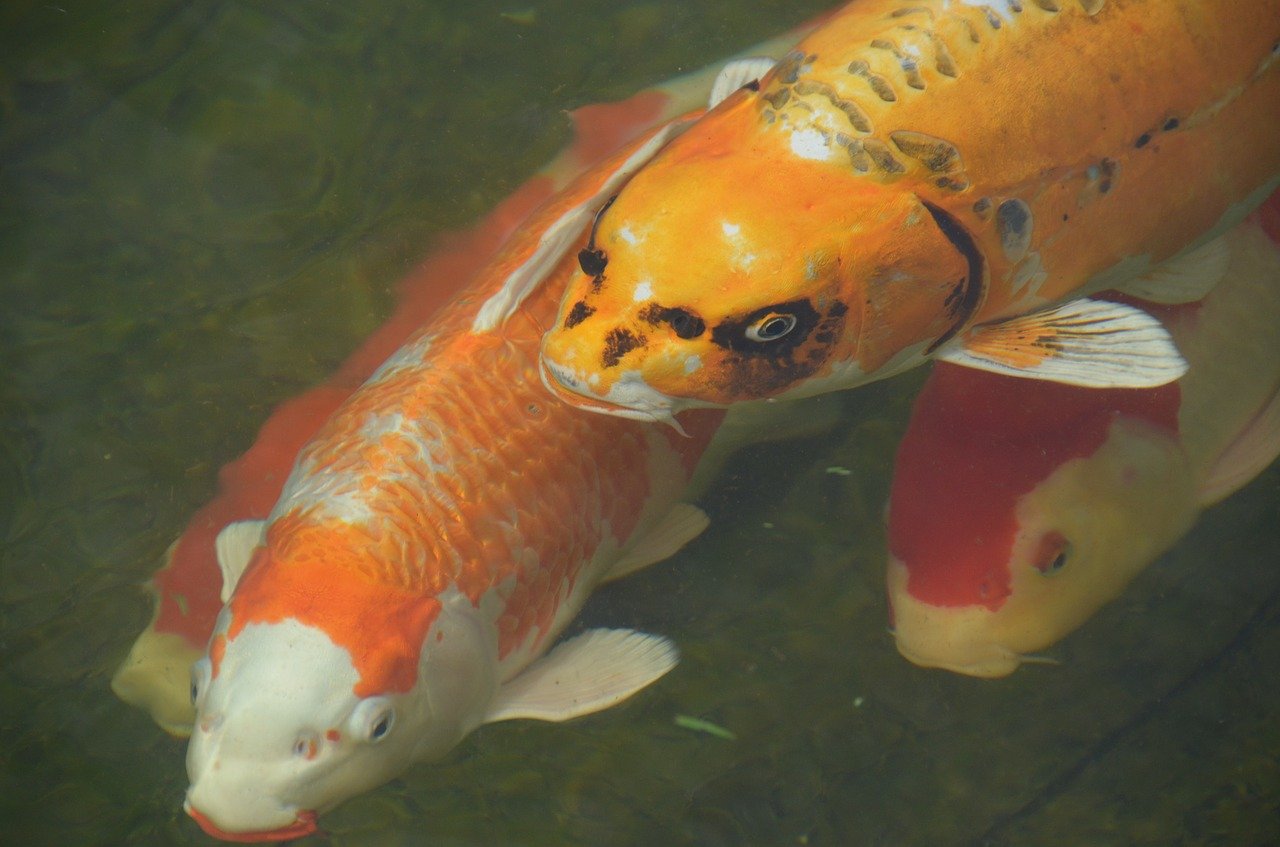
A common question among new fish keepers is whether koi eat algae. Some people assume that because they are bottom feeders, koi will automatically chow down on any algae in the tank.
The truth is that while some breeds of koi do enjoy an occasional snack of green slime, many types of these colorful creatures don’t like to eat algae at all. Because they are opportunistic feeders, koi may eat algae if food is scarce, but it is not their favorite food.

The Koi Fish Diet
Koi fish are omnivorous feeders, consuming both plant and animal matter. They have been known to eat algae, zooplankton, small insects, crustaceans, and typical fish food such as pellets or flakes. These diets are seasonal; during the warmer months of the year, koi can be seen grazing on grasses and plants, while during colder times of the year, when fewer varieties of plants are available for them to eat, they may choose animal over plant matter.
Koi fish in captivity are sometimes given supplemental feedings of brine shrimp, worms, and other foods. These fish are also fed vegetables such as peas, spinach, or lettuce on occasion; these plants might be considered treats by the fish, but they provide nutrients that are not normally found in typical koi diets and may promote better health for your pets. But it’s better for koi fish to stick to a natural diet.
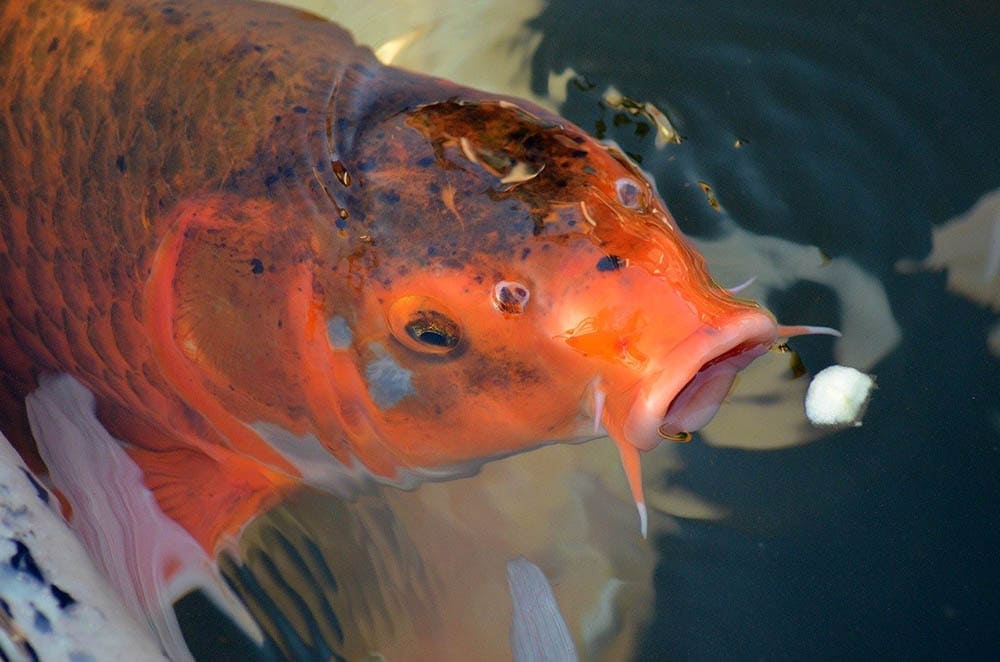
Why Koi May Not Eat Algae
Like most animals, koi will reject food if it does not smell like something they would normally eat or if it seems dangerous. Ingesting even one mouthful of algae isn’t likely to harm your koi; however, consuming large amounts of it can lead to an upset stomach and diarrhea.
Most koi don’t enjoy eating algae because it doesn’t have much nutritional value for them, even if it has lots of flavor and color. Koi prefer foods high in protein, such as worms or insects, instead of the mostly carbohydrate-based algae.
Is Algae Dangerous to Koi Fish?
You can find many different types of algae in koi fish tanks. While some of these are harmless, others may cause problems for your underwater friends. Algae that is not species-specific to your local water supply and newly added algae from new plants can contain chemicals and pesticides that can be harmful to you and your pets if ingested.
The types of algae your koi will eat mainly include green algae such as carpet and string algae. Note that the green algae is very distinct from the blue-green kind, which could be toxic to your pet.
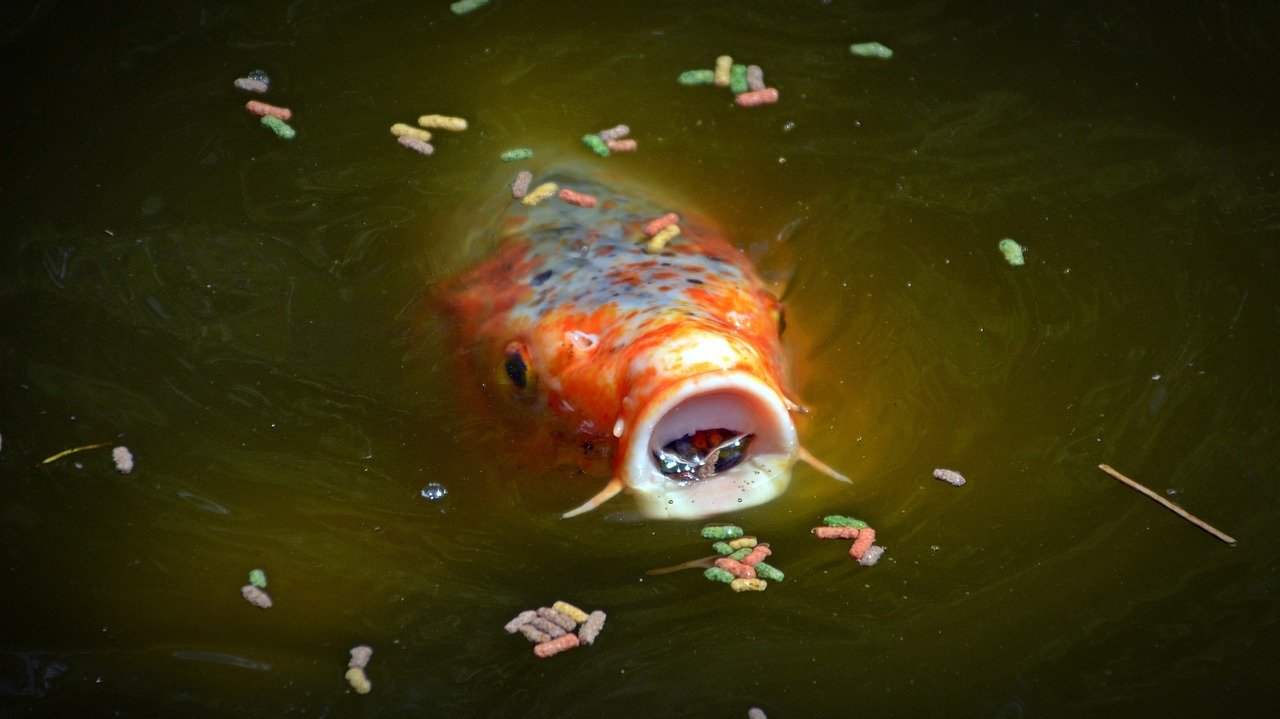
How Do I Prevent My Koi Fish from Eating Algae?
Because algae growth is directly related to the number of nutrients available in the water, it is possible to limit or prevent an outbreak by doing regular water changes. These aren’t just for removing solid waste; you should also regularly replace and replenish water and pump fresh oxygen in your tank. Feeding your swimming buddy high-quality fish food is also an important way to minimize algae feeding since your pet won’t have “funny cravings” for things like dead grass clippings or algae.
How Do I Remove Algae from My Koi Tank?
Koi owners love their algae; however, there may occasionally be times where you want to remove this living plant from your koi’s home. This removal process will vary depending on how much of the green stuff has grown in the tank and what type of algae it is, but if you follow a few simple steps, you can effectively eliminate unwanted plants from your aquarium.
If left unattended, algae may increase until it covers the entire tank, which will severely reduce your koi’s ability to see and breathe. Algae may also threaten any fish or other life that lives in the tank with your koi since it provides an ideal hiding place for predators.
Final Thoughts
Koi are no different from other animals in that they will reject unappetizing or unfamiliar food. If you’re feeding your koi foods they aren’t used to, do so in small amounts until you see how they respond. Some types of food may take a few days to go through the digestive system before passing out the other end, while others will be expelled almost immediately.
You should always examine their feces after feeding them new food to ensure that it comes out as expected. If you notice anything unusual or no sign that the meal has been digested at all, discontinue feeding that type of food and contact your veterinarian as soon as possible.
- Read more: Do Koi Fish Eat Other Fish?
Featured Image Credit: Pixabay

